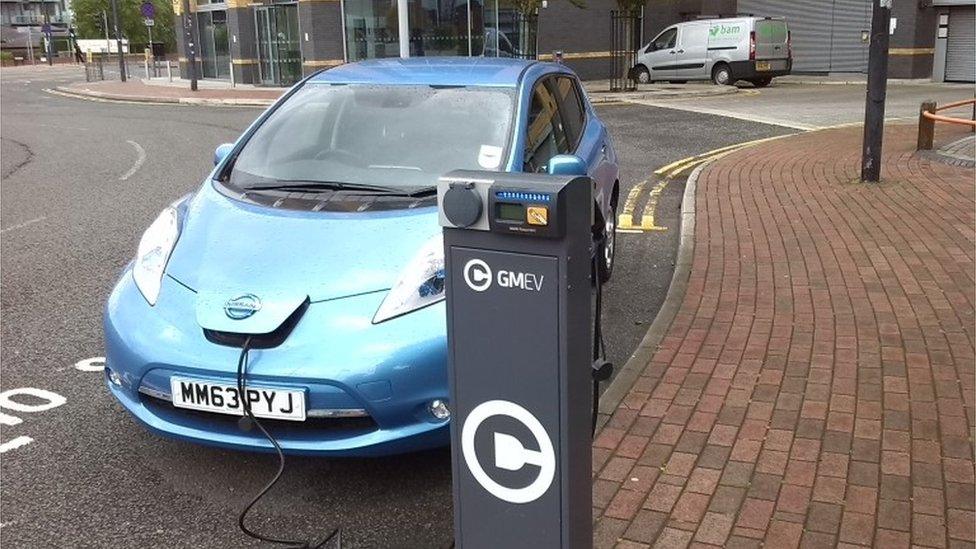Life on Wales' most polluted road - Hafodyrynys, Caerphilly
- Published
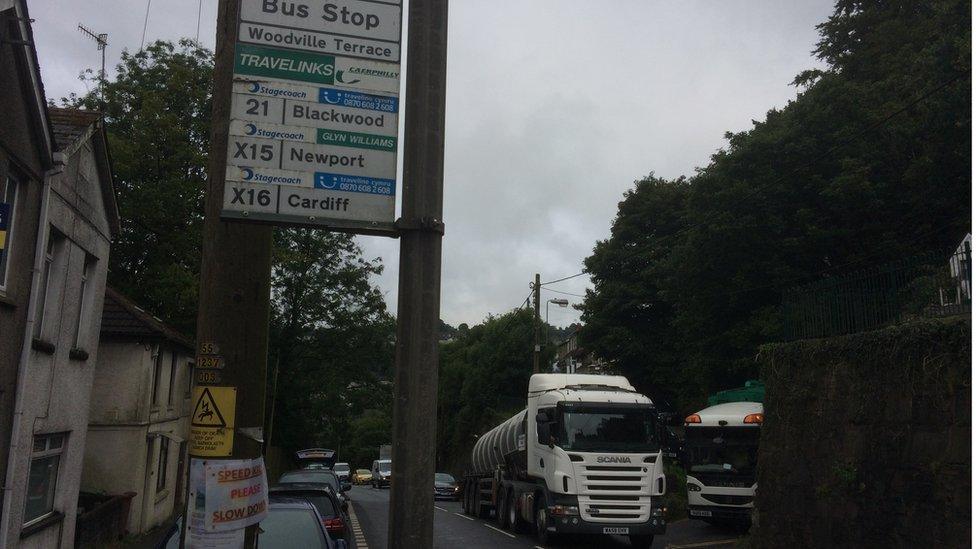
A house on a polluted Caerphilly county street was sold in April, but is already back on the market as the new owner cannot bear living on one of the UK's worst roads.
In 2015 and 2016, nitrogen dioxide levels on the A472, Hafodyrynys, were higher than anywhere but central London.
Caerphilly council is looking at solutions, including compulsory purchasing and flattening 23 homes.
But Barbara Smith has had enough after just four months on Woodside Terrace.
"It is not just the pollution, but the noise - all through the day and the night," she said.
"Every time a lorry goes past, I can feel the house shuddering. It's driving me nuts, I can't even sleep with ear plugs."
The writer had been living with her daughter in Ipswich and was desperate to move back to Wales - so took the house on Woodside Terrace without realising its history.
Ms Smith has since spent £3,500 on secondary double glazing but it has made no difference, so she has put it back up for sale.
She added: "When the traffic lights turn, it is peaceful for a few seconds, but then whoosh, whoosh, whoosh. I can't stand it any longer."
Ms Smith is not the only one desperate to get away from the 23 properties - a row of 20 terraced homes, two semi-detached and one detached.
Martin Brown says someone could be killed trying to cross the road
When Martin Brown bought his home 48 years ago, it was very different, without a constant procession of lorries heading between Pontypool, the M4 and Heads of the Valleys.
It is hard to hear him speak above the sound of traffic as he points to four empty houses - one was for sale for a year without any interest and another was the home of an elderly couple who both died more than four years ago.
"Their son hasn't even bothered putting it on the market," he said.
"It's unbelievable, all day long. And if you try and cross the road, you are taking your life in your hands. Somebody is going to be killed."
Mr Brown has put up signs urging motorists to slow down, but described it as "a racing track" that only the bravest dare attempt to cross.
He has resigned himself to never being able to sell and move away and believes a compulsory purchase is the only solution.
"My suggestion is to knock them all down," Mr Brown said.
"They are building an estate the other side of the valley in Crumlin.
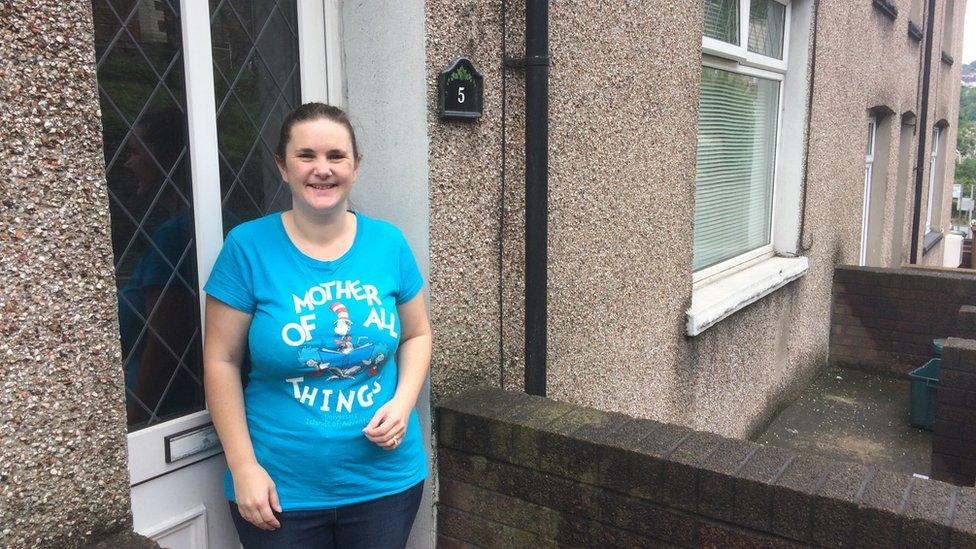
Deanna Hardwick believes she will lose money if there is a compulsory purchase
"Give us one of those, and there could be an agreement if we ever sell, we pay the council or government the difference (in value)."
However, Deanna Hardwick would rather a bypass built - another option being considered - to take traffic away from the road.
She bought her property for £90,000 in 2006, before the housing market crashed.
"I wanted to put it up for sale last year for £85,000 but the estate agent said I wouldn't get more than £70,000 or £75,000," she said.
"A compulsory purchase is probably the best option for most of the community but I wouldn't want to sell if it's only market value as I'd lose too much money."
Maldwyn Day talks about traffic "thundering past" and said he has had breathing difficulties since arriving four years ago, which he believes is down to pollution.
But not everyone wants to leave - Graham Collins described moving from the front to the back of his property as "going from the M4 to the rainforest".
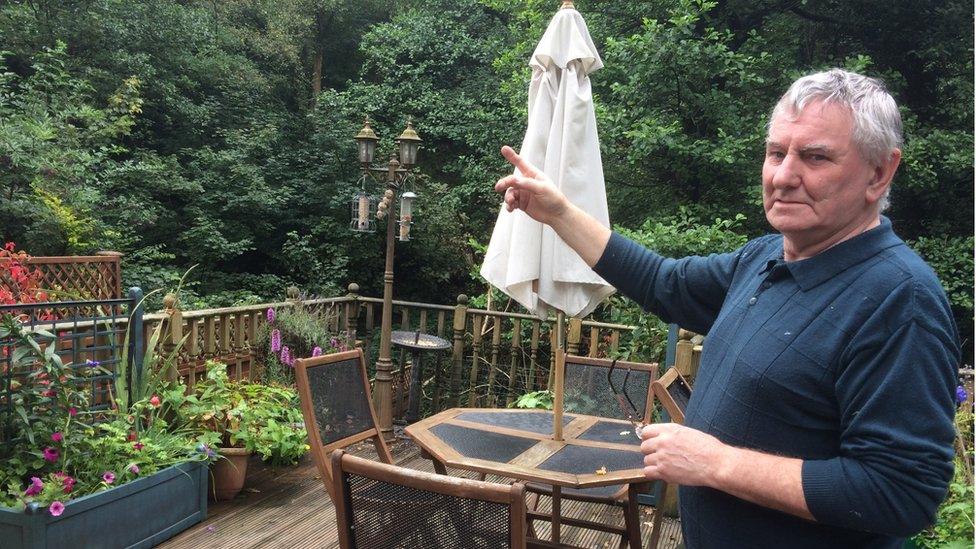
Graham Collins says he is able to escape the noise at the front of his property in his garden
He lives in the only detached property at the bottom of the road and instead of rushing traffic, a stream running is the most audible noise in his garden, with green woodland all around.
"I don't want to move. I'm from Cardiff originally and love it here," he said.
"I can escape out here. There is lots of wildlife and when the trees are cut you can see right across to Crumlin."
He is unsure whether knocking down the houses would even solve the problem.
Pointing to a row of houses on the other side of the road, he said: "It's a bowl and you can't knock the mountain down.
"If you flattened these houses and widened the road, you'd just encourage more traffic and more emissions.
"And then those on the other side would have the problems we are having now."
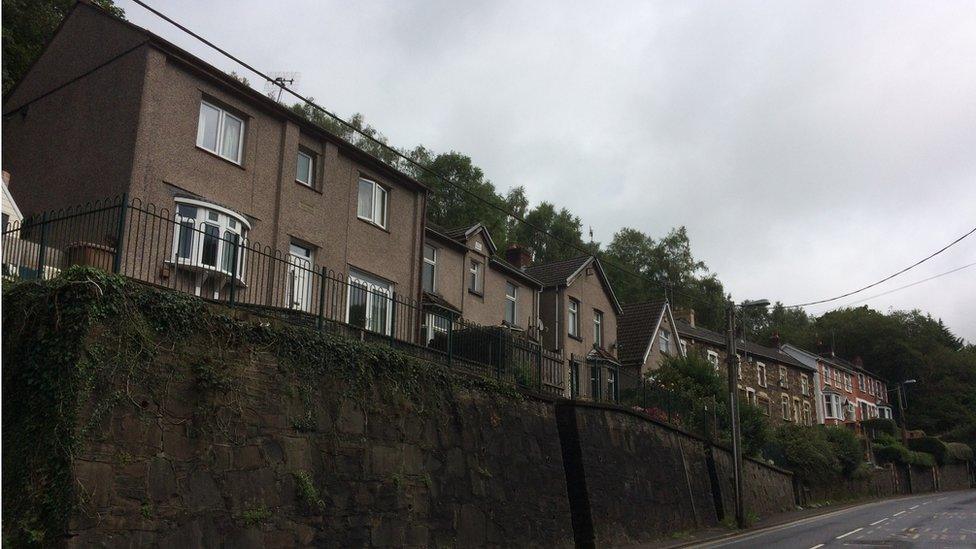
Mr Collins believes flattening the houses will just create more problems for a row of properties on the other side of the road
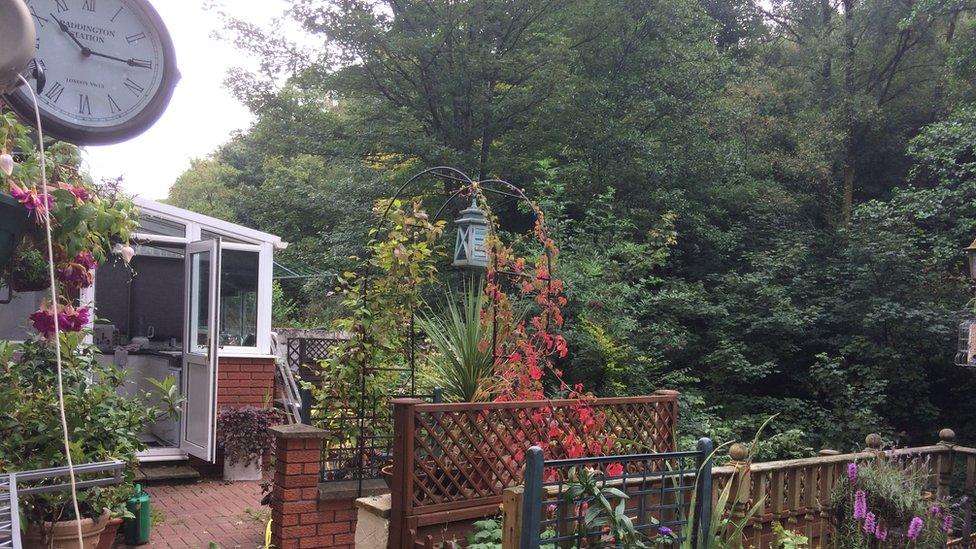
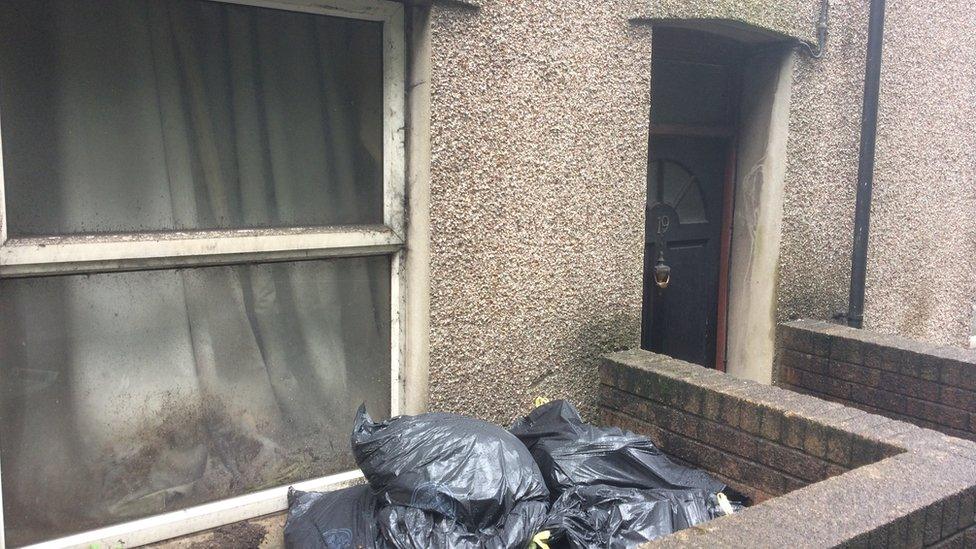
- Published22 August 2017
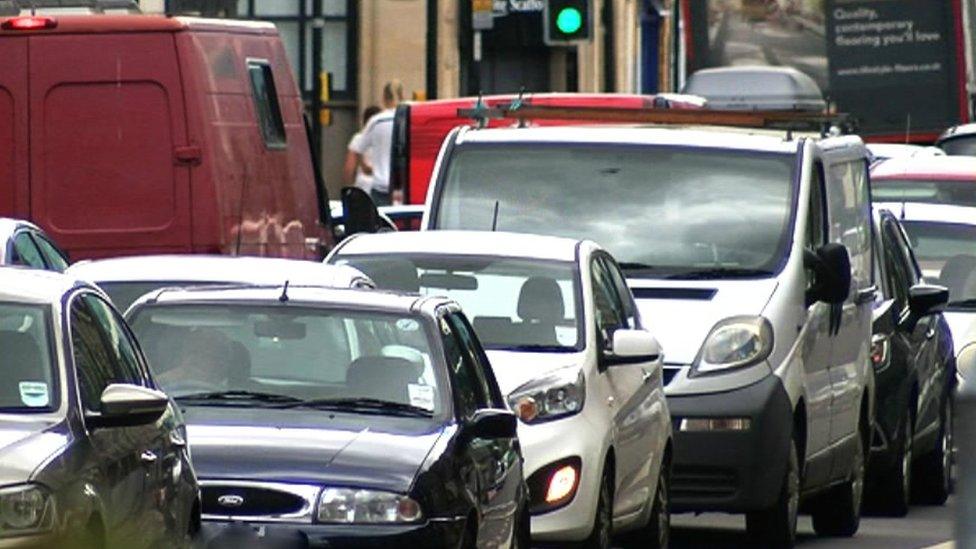
- Published16 May 2016
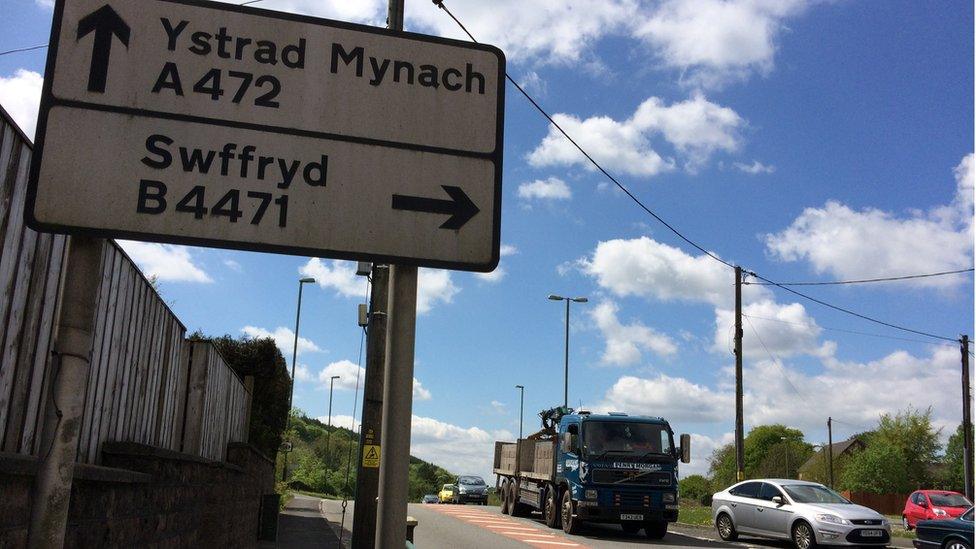
- Published7 March 2017
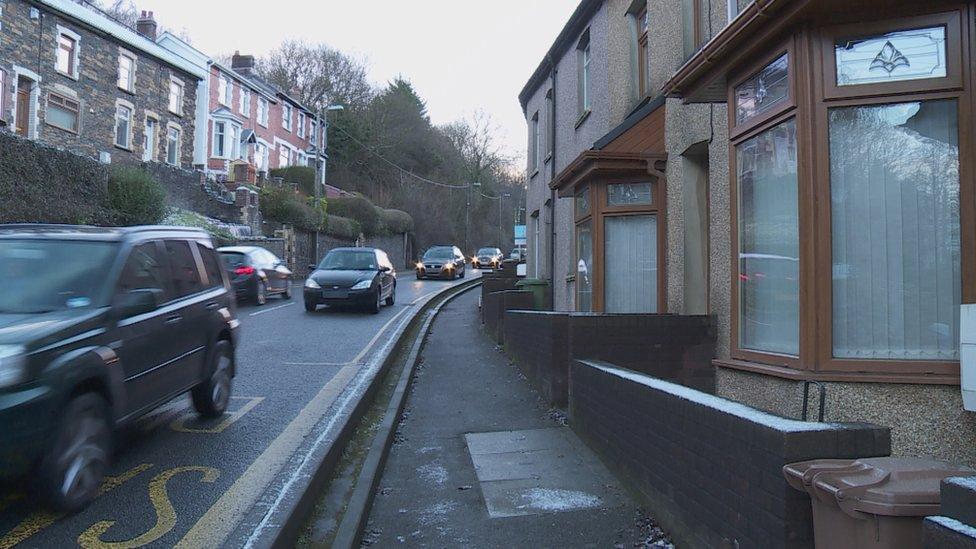
- Published8 March 2017
